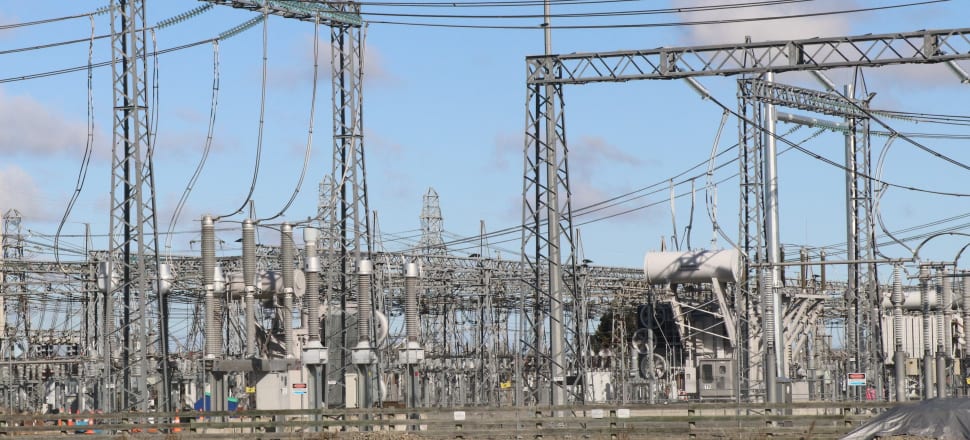
Dividend delayed at request of Christchurch council’s holding company
A month after being announced as chair of Christchurch City Council’s holdings company, Abby Foote wrote to council-owned lines company, Orion.
The letter, released to Newsroom after an official information request, was headed “Orion dividends”.
READ MORE: * Christchurch mayor backtracks on election promise * Council sleepwalks towards partial asset sales
Year-to-date results and forecast dividends for council-owned companies had been reviewed, said Foote’s April 5 letter to Paul Munro, Orion’s chair.
(Other companies in the city council’s stable include Lyttelton Port Company, which is owned outright, and Christchurch International Airport, in which the Government owns a 25 percent stake.)
Foote said the holdings company, Christchurch City Holdings Ltd (CCHL), continued to be reliant on investments such as Orion. She noted the outlook for the current financial year depended on how the economic situation “evolves”.
A proposal had been informally discussed with Orion’s management, which Foote asked the company’s board to formally consider. Details of the proposal were redacted.
“We understand from our discussions with Orion management that this delay should have minimal impact,” the letter said.
The proposal should be discussed with the board, Foote wrote. If endorsed, the situation should be reflected in the final version of Orion’s statement of intent.
Asked for details of the proposal, Orion chair Paul Munro says the company delayed paying its dividend at CCHL’s request. Its final dividend of this past financial year (FY23) was paid in the first quarter of this year. (This financial year, began on April 1.)
CCHL’s acting chief executive Paul Silk says it asked Orion to defer its final dividend payment “as part of its ongoing management of the portfolio”.
“The delayed dividend payment has no implications for Orion’s work programme.”
Asked why the request was made, Silk says: “As part of our financial planning for the FY24 dividend target of $50.7m ... CCHL requested Orion’s final dividend payment in FY23 be deferred to quarter one in FY24. This is a prudent approach given the current macroeconomic headwinds.”
Foote’s letter comes amid a nervous time for CCHL-owned companies, as city councillors endorsed a review which will consider their strategic importance, and whether they should be sold down or, potentially, sold off. (Selling assets would break a pre-election promise by Mayor Phil Mauger.)
The financial pressure to perform is exemplified by, earlier this year, CCHL refusing to accept the initial financial forecasts from the likes of Orion “pending further discussion”, according to a CCHL presentation to subsidiary chairs in April.
The possibility of a company sale, or sell-down, was provoked by a report, completed last year, by consultancy Northington Partners. The report said: “The CCHL portfolio provides significant opportunity to improve performance and recycle capital back to CCC for debt reduction or reinvestment into other city assets”.
A strategic review is now underway.
CCHL April5 Letter Orion by David Williams on Scribd
Orion, which is 11 percent-owned by the Selwyn District Council, has the country’s third-largest electricity distribution network, located between the Waimakariri and Rakaia Rivers. It powers more than 220,000 homes and businesses.
A series of devastating earthquakes, including one in 2011 which killed 185 people, put a huge financial strain on the council, as it rebuilt and recovered. As a consequence, the city council tried to wring more from its companies.
The council’s so-called “capital release” programme garnered $440 million from the CCHL subsidiaries, including Orion, between 2015 and 2019.
Between 2012 and 2014, Orion’s dividend payments to Christchurch and Selwyn councils averaged $33 million a year. Over the following six years, the average dividend was $55 million, before dropping back to an average of $31 million in the past three financial years.
That dividend jump coincided with ballooning debt.
The company’s long-term borrowings leapt from $84 million to $227 million in 2016. This past financial year, the company’s debt soared to $498 million.
According to projections made this past year, debt could rise to $632 million by 2025, attracting an annual interest expense of $23 million.

A peculiarity of Orion’s financial forecasts is it will pay more in dividends than it will make in after-tax profit. Over the next three financial years, including this one, it’s estimated Orion will make $57 million in profit but pay $62 million in dividends.
The difference is most pronounced in the first two years, with estimated profits of $34 million versus dividends of $50 million. The company’s latest statement of intent shows it will pay “special dividends” of $16 million in the next two years.
Asked why it is debt-funding some dividends, Munro, Orion’s chair, says: “In paying dividends Orion considers its cash flow requirements, target capital structure and overall company value.
“Total shareholder return is comprised of both dividends and an annual increase in the value of our asset base under the Commerce Commission’s regulatory framework.”
Within two years, Orion’s “regulated asset base” (RAB) is forecast to increase to about $1.7 billion.
The forecast debt-to-RAB ratio is 40 percent, below the Commerce Commission’s benchmark of 42 percent.
Munro says: “Total shareholder return is comprised of both dividends and an annual increase in the value of our asset base under the Commerce Commission’s regulatory framework.”
Silk, the acting CCHL boss, says: “In managing the financial impact of the COVID-19 pandemic, CCHL has worked with all of its subsidiaries to ensure dividend payments balance the interests of both the shareholder and the businesses themselves in an appropriate manner.”
Orion’s forecast payment of special dividends coincides with somewhat of a lull in capital expenditure, which is expected to be $136 million this financial year, dropping to $125 million in the next.
Capital spending then increases to a forecast $183 million in 2026, eventually rising to $466 million in 2033.
Orion is operating in a tough environment. The drive for decarbonisation has increased interest from large industrial users considering a switch to electrification. However, there’s a shortage of skilled and trained staff, costs have escalated, and there are long delays in filling equipment orders.
The aforementioned CCHL presentation to subsidiary chairs in April set out a timeline for the strategic review of the companies. It said a shortlist of options, and detailed options analysis, should be completed this month. A final business case and investment policy framework is expected to be presented to CCHL’s board in October.
* This story has been updated with further comment from Paul Silk.







